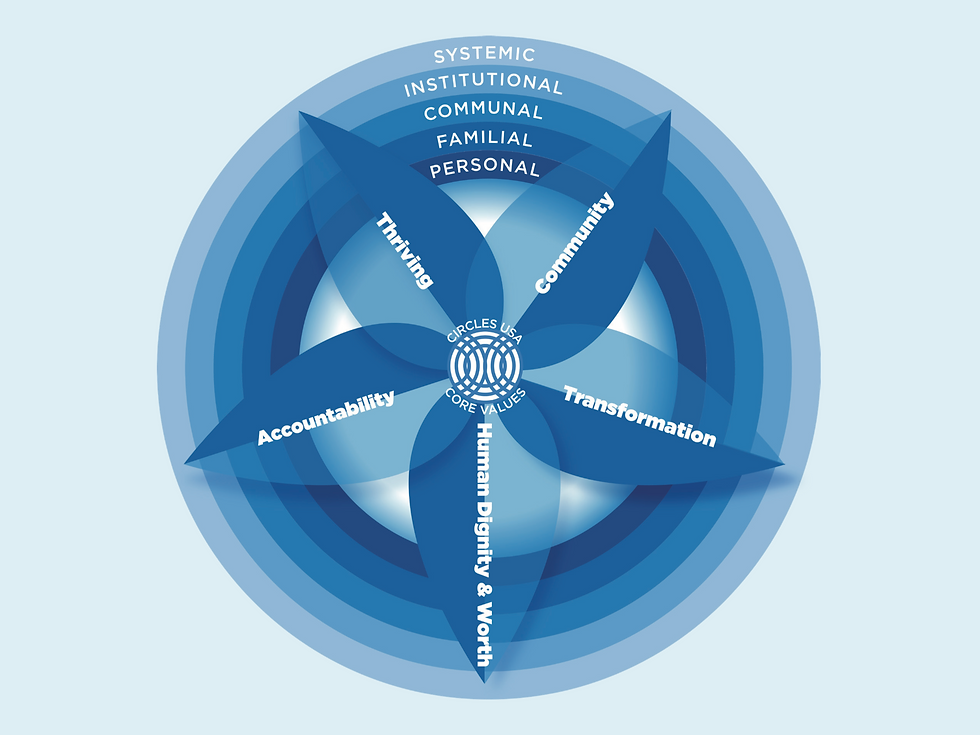Culture Eats Strategy for Breakfast
- Dec 20, 2018
- 2 min read
Updated: Oct 7, 2024
You cannot change the strategy of a community, an organization, or system – without focusing on culture and the beliefs people hold about how things work. Sometimes attributed to the business guru Peter Drucker, “culture eats strategy for breakfast” is an illustrative warning relevant to all of us working on the elimination of poverty.
At Circles USA, we’ve changed the culture of poverty by tapping the power of a culture of prosperity. Whenever people have an experience that contradicts a negative reality that they have been normalizing, healing occurs. For example, participants in poverty are called Circle Leaders, and they lead the process to achieve their own economic stability. Since a typical experience for those in poverty is to be dismissed and marginalized, there is a powerful healing that occurs through the acknowledgement that they are the poverty experts and must be at the planning table to find real solutions on behalf of the entire community.
The idea of a poverty reduction system is a powerful contradiction to executives who are immersed in the management of requirements for a fragmented and random array of community programs. There is genuine excitement about focusing on how to rearrange work into more clear pathways that actually lead people out of poverty and reduce poverty rates.

As more coherence is created in the sector of human services, we can find opportunities to enlist other sectors in ending poverty. For example, in workforce development, employers can challenge their mindsets about employees with backgrounds in poverty and implement responsive ways to do business in order to be more successful. Teachers can integrate pedagogies for engaging children from homes in poverty. Civic groups can question their hidden biases and rules that make it difficult for those in poverty to feel welcomed. Philanthropic organizations can analyze if their funding practices favor short-term wins at the exclusion of long-term gains. Whatever the challenges, transformational leaders engage crucial conversations that generate more cohesion towards a shared vision of ending poverty.
Are you leading Big View discussions on this topic? Share your perspective with us at Circles@CirclesUSA.org.
The content for this Blog Series is drawn from the Poverty Reduction Lab program, a collaboration with CQIU. The first post, “Can We Believe in Ending Poverty?” can be accessed here. Stay tuned for more about:
Dismantling the poverty management system
Leading your community through the four stages of change
Creating a pathway to end poverty

To receive subsequent blog posts, sign-up for The Big View Newsletter, our monthly bulletin about poverty research and policy change.
Warm regards,
Scott. C. Miller, Founder and CEO, Circles USA





Comments